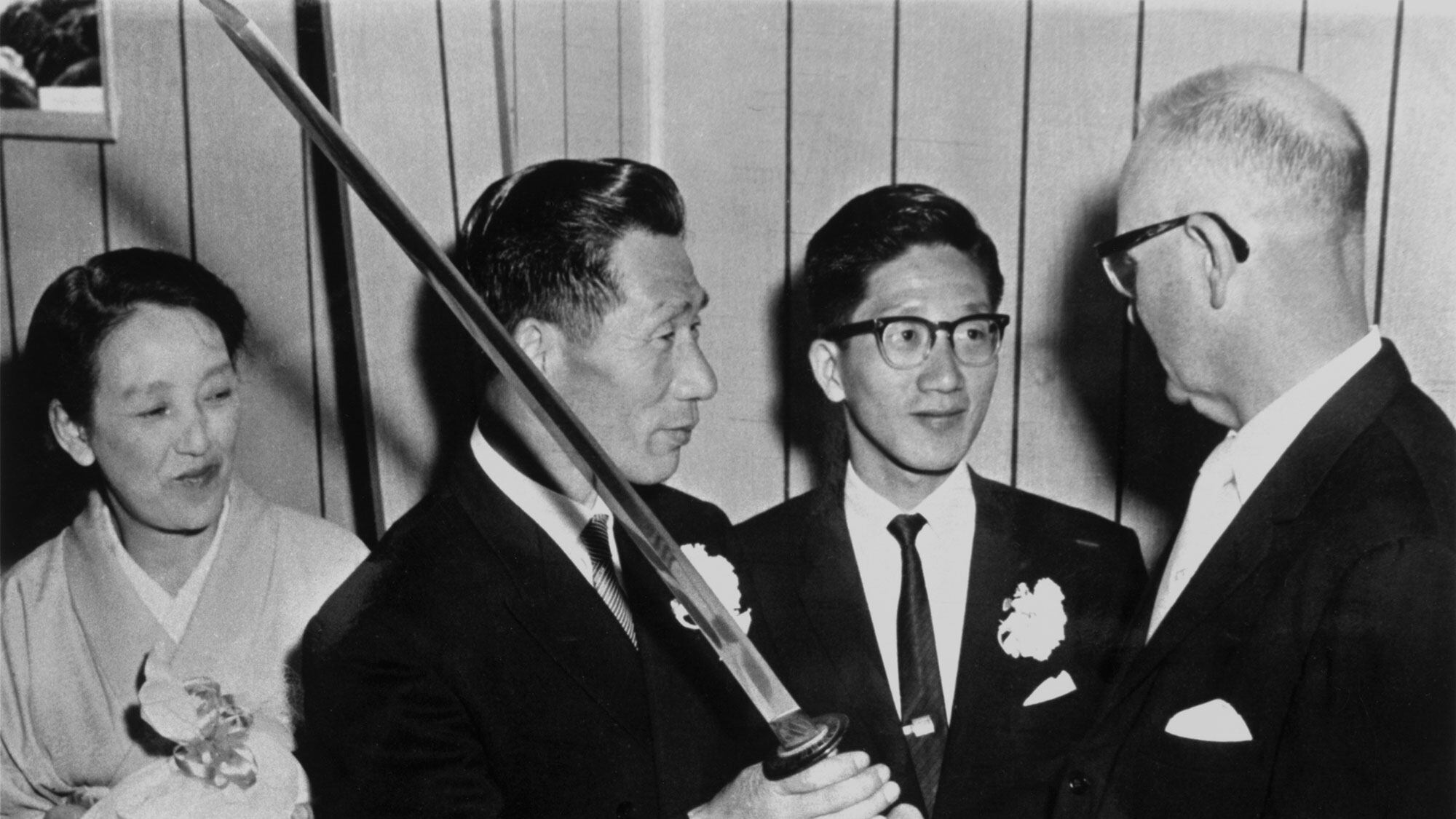When the Junior Chamber of Commerce in Brookings, Ore., sought to invite a retired World War II Japanese fighter pilot to the town's 1962 Azalea Festival, the ensuing controversy was so fiery it took President Kennedy to smooth things over. The pilot in question, Nobuo Fujita, stands alone in U.S. history as the only combatant to drop a bomb on the mainland. The explosive landed in the woods 19 miles east of the coastal town in Southern Oregon, and Fujita's diplomatic saga with the nearby community is replete with coincidence, forgiveness and a truly rare sense of closure—enough to motivate Portland documentarian Ilana Sol to make the story the subject of her new film, Samurai in the Oregon Sky.
We spoke with Sol about the four-decade bond between Fujita and Brookings, and how she tracked down the bomb site and interviewed veterans.
WW: You've made a documentary, On Paper Wings, about another WWII aerial attack on Oregon. What is it about this era that draws you in?
Ilana Sol: I found out about both stories on the same day in November 2002. I was at the Oregon Historical Society's research library and happened to come across a folder titled "Japanese Attacks on Oregon." I was a pretty good history student, but I'd never heard of any of this stuff. As I kept reading through the articles, I found out that the people in both incidents had met each other and reconciled. That shocked me even more.
And the Brookings Junior Chamber of Commerce in 1962 got ahold of Fujita just by writing to the Japanese Consulate?
Yes, and, in fact, the Japanese Consulate had no idea what they were talking about. "What? There was no pilot that bombed the U.S. mainland!" The U.S. government had also censored any publicity about the bombing.
The major beats of this story are concise enough to fit on a plaque, but it's deep thematically. Did its sense of resolution appeal to you?
It was appealing, but it made part of the filmmaking difficult. When you write the story down, the climax is 1962, when Fujita first visits Brookings, but I didn't want to stop there and have everything after be title cards. The story kept going, which is really what we all need to do. Peace isn't just token gestures. The relationship [between Fujita and Brookings] kept going until literally the day he died [in 1997]. That day, someone from Brookings was on their way to Japan to deliver town mementos.
What was your impression of Fujita's emotional life?
One of the very first things his daughter told me was, "Listen, I'm a woman, and you don't talk to women about war in our culture." She was able to get at her father's character, but simply didn't know how he felt during wartime.
Well, it's an interesting story of generational evolution too.
Right. The [Junior Chamber members] were all in high school during WWII, but some were drafted in the months just after it ended. They had seen their older siblings go off to fight the Japanese, but when they got drafted, they were told the Japanese were our friends against the Soviets.
What's the actual bomb site like?
The very first time I tried to go to it was in 2003, and I couldn't find it. Think about that for a second: I couldn't find the only known place on the U.S. mainland with an enemy bomb dropped on it. I remember asking a local high school student who was volunteering at the chamber how to get up there, and she was like, "What bomb site?" To this day, I don't know where I was on those forest roads, but that gives you an idea of how remote the site is. I do want to say the Forest Service has done a really good job of putting up signs since.
With June being the 75th anniversary of D-Day, and you being a documentarian, how do you feel about first-person sources from history dying out?
Too often, we wait until the last minute to get these stories. Someone needs to be talking to the Vietnam generation now, to the Operation Desert Storm generation now—while the memories are still clear.
SEE IT: Samurai in the Oregon Sky screens at Hollywood Theatre, 4122 NE Sandy Blvd., hollywoodtheatre.org, on Saturday, June 22. 7 pm. $7-$9.

